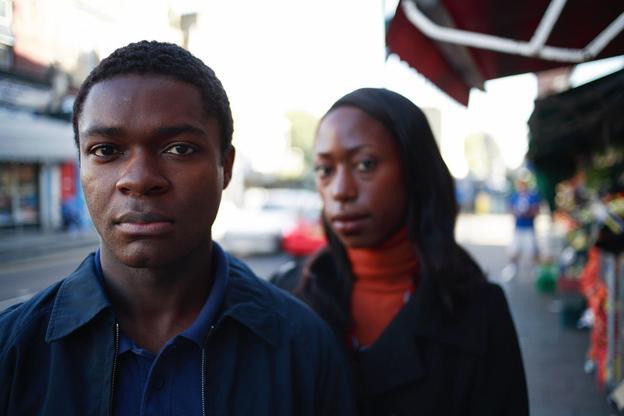
“Whenever I think about it, everything bad that has ever happened to me has involved a black person.”
Those words are the very first spoken by the main character, Joe, in the controversial BBC Films production, “Shoot the Messenger.” S&A faves David Oyelowo and Nikki Amuka-Bird star in the lead roles of Joe and Heather.
Written by Sharon Foster, and directed by Ngozi Onwurah, “Shoot the Messenger” is a well-crafted, thought-provoking drama about Joe, a black professional who, after learning about a need for more black male teachers in his community, gives up his IT career to become a teacher. What ensues is a sequence of events that turn Joe’s life upside down. After innocently shepherding to class a few of his more wayward students, Joe is accused of physical abuse and left to defend himself against the judgmental ire of the school, parents, and, ultimately, what feels to Joe like the entire black population of his community.
As Joe, Oyelowo gives, arguably, the best performance of his early career, portraying the character as a brash, self-assured leader who slowly becomes more vulnerable and needy than the students to whom he had intended to be a savior. Joe’s only saving grace is his relationship with job counselor Heather, played perfectly by Amuka-Bird. Having worked together several times since “Messenger,” it’s easy to recognize the natural chemistry between the two actors, and makes one wonder why we don’t see more of them together.
“Shoot the Messenger” featured a who’s-who cast of black actors on British television at the time, including Oyelowo, Amuka-Bird, Brian Bovell, Daniel Kaluuya, and Sharon Duncan-Brewster.
But despite “Shoot the Messenger’s largely black cast, and its primary focus on its black characters, the film’s main detractors were its black viewers. “Shoot the Messenger” was charged with being a negative, stereotypical portrayal of blacks in Britain, highlighting the problems, but providing no solutions. The BBC and writer Sharon Foster were left to defend a work that ultimately earned Foster the Break-through Talent Award at the 2007 BAFTAs.
I will admit that, at times, “Shoot the Messenger” is not the most comfortable of viewing experiences; but only because some the negative aspects of the film are so familiar and believable. This film clearly intends to expose some of the ills that continuously permeate communities of black people in Britain and all over the world. And as its title suggests, there’s a message to be delivered through this film. Is that message a bit harsh and hard to swallow? Yes. But so are a lot of things that are good for us.
“Shoot the Messenger” is scheduled to screen at the 2017 Pan African Film Festival in Los Angeles (celebrating its 25th anniversary) on Monday, February 20 at 12:20pm. Tickets are now on sale and can be ordered here.

